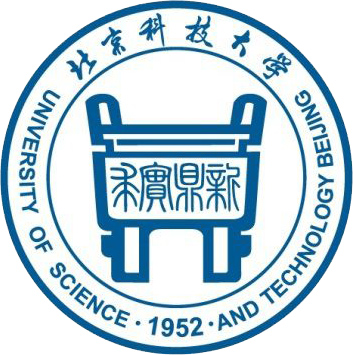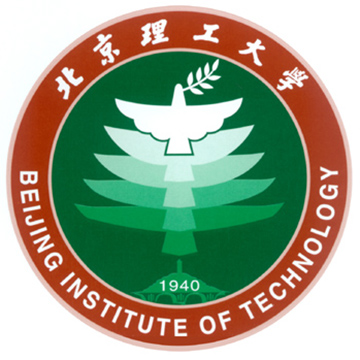 About the Program
About the Program
Introduction of Materials Processing Engineering
Materials Processing Engineering is an applied fundamental discipline, which focuses on the interrelations among materials preparation, forming processing technology, control approach for forming processing and materials structure and characteristics. Its main task is to provide scientific basis for materials preparation, processing production, forming processing optimization and processing technology, equipment and the control methods for advanced materials.
The Materials Processing Engineering discipline of USTB was formed based on the united of three units, including Department of Metal Forming (established in 1952 ), specialty of Foundry Technology and specialty of Advanced Materials Welding Technology. Materials Processing Engineering is the National Key Discipline and the Key Developing Discipline of the National “211” project. It has been entitled to offer research stations for post - doctoral studies and has positions for special accommodated professors engaged by the “Yangzi River Plan” approved by the State Education Ministry, and to offer the degrees of Engineering Doctor, Master, and Bachelor as well. From 1952 and the late of 50s, USTB began to recruit undergraduate students and post - graduate students of the specialty of Plastic Working for Metals, respectively. It was one of the first universities in China to offer the degrees of Master and Doctor in the specialty of Plastic Working for Metals in 1981. In the restructuring of the disciplines and specialties led by the State Education Ministry from 1998, the master and doctorate programs have been offered for the specialty of Material Processing Engineering from 2000 and undergraduate students of the specialty of Materials Forming and Control Engineering began to be recruited. In the past decades, the discipline has cultivated over 6000 undergraduate students, 600 masters and 100 doctors, completed more than 230 projects including national key research projects, promotion of science and technology, international collaboration and domestic enterprises cooperation. 50 research results were awarded with various prizes of the national level, the provincial level or the ministerial level. The academic reputation and achievement of the discipline are in the top rank in China and of great influence abroad. In the domestic discipline area of materials processing engineering, in the national research and production area, especially in the area of metallurgy, the discipline of Material Processing Engineering has played an important role in scientific technology progress and creation of social economical benefits. Meanwhile, an integrated, well - equipped scientific mechanism has been formed, which includes “One department ( Department of Materials Processing and Control Engineering ), two institutes ( Institute of Metal Forming and Institute of Foundry Technology ), National Engineering Center of High - Efficiency Rolling - Research and Center of Metal Electronic Information Materials Engineering approved by the State Education Ministry.
Currently, the discipline has 14 professors, 12 associate professors, 15 lecturers. Among them are 9 doctorial student supervisors, 1 special accommodated professor engaged bythe "Yangzi River Awarding Plan”, 1 elected member of the National “Millions of Outstanding Talents Project”, 1 awardee by “National Outstanding Youth Foundation”. In addition to the National Engineering Center of High - Efficiency Rolling, the discipline possesses 6 academic research directions, including: Advanced Materials Preparation and Processing, Materials Forming Processing Control and Simulation, Materials Processing Theory and Structure, Plastic Working New Processing and New Technology, Metal Solidification and Control and Advanced Materials Advanced Welding Technology.
At present, the Department of Materials Processing and Control Engineering and the Discipline Committee of Materials Processing Engineering are responsible for the organization and coordination of the teaching activities, scientific research and education as well as plan - making for the discipline development. Now, the leadership board consists of 4 members, Kang Yong-lin (dean), Ren Xue-ping (leader of the party branch), Liu Ya-zheng (vice dean), Mao Wei-min (vice dean). The discipline committee of Materials Processing Engineering is composed of 9 members, including Han Jing-tao (chairman), Xie Jian-xin, kang Yong-lin, Liu Ya-zheng, Wu Chun-jing, Wang Xian-jin, Huang Ji-hua, Mao Wei-min and Tang Di.
Remarks:
This program is avalaible for senior Scholars as advanced studies. Senior Scholars for advanced studies must complete relevant courses and programs in one year and will receive an advanced studies certificate.
 About University of Science and Technology Beijing
About University of Science and Technology Beijing
The University of Science and Technology Beijing (USTB) was founded in 1952 following the amalgamation of the best departments in related fields of five eminent universities as a result of a nationwide reorganization of the higher education system. Over half a century of remarkable growth, it has developed into one of the most influential key national universities sponsored by the Chinese Ministry of Education. USTB is renowned for its study of metallurgy and materials science. Its main focus is on engineering;at the same time it maintains a balanced programme of science, management, humanities, economics and law. It was one of the first universities to be entitled to establish state-approved graduate schools and was chosen to be part of China's "211 Project", which is designed to develop a hundred first rate universities in the 21st century. In 2006 it was also selected as one of a select group of pilot universities for the "Platform for National Advanced Disciplines Innovation" program.
USTB values greatly and will for ever cherish its long tradition of being "Rigorous in Learning and Research and Venerating Practice". Over 100,000 graduates are contributing to society all over the world; most of them have become professionals and joined our national elites in the field of politics, economics, science and education. As metallurgy and materials science are the two disciplines for which it is most renowned, USTB is also known as "the cradle of iron and steel engineers" .
USTB is now working hard towards its goal of becoming one of the top-ranking research universities in China and an internationally renowned higher education institute with its own distinguishing features. While retaining its current leading position in metallurgy and materials sciences, it is making great efforts to develop other areas and to achieve a balanced disciplinary structure in engineering and technology, science, management, economics, social sciences, humanities and law in the near future.
 Application Materials
Application Materials
1. Photocopy of valid passport
With photo, passport number &expiration date and name included.
2. Passport-sized photo
A passport-sized photo taken recently of the applicant.
3. Master's degree diploma
Graduation certificate should be in Chinese or English.If not, it should be translated into Chinese or English and be notarized.
4. Transcript of postgraduate school
5. HSK Certificate (No need for English-taught program)
Level 6 or above
6. Health certificate(optional)
Photocopy of physical examination record.
7. Recommendation letter
From professor,associate professor or equivalents.
8. A letter from a sponsor

 Introduction
Introduction About the Program
About the Program About University of Science and Technology Beijing
About University of Science and Technology Beijing Accommodation
Accommodation Fees
Fees Admissions Process
Admissions Process  Entry Requirements
Entry Requirements Application Materials
Application Materials Reviews
Reviews Scholarship
Scholarship